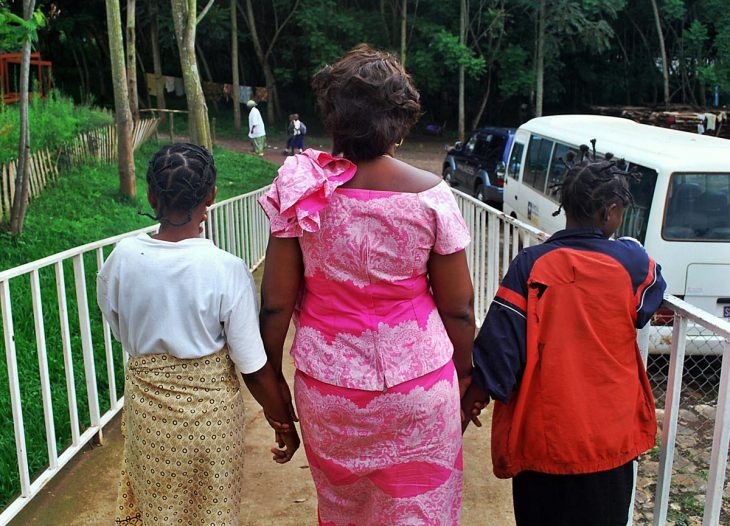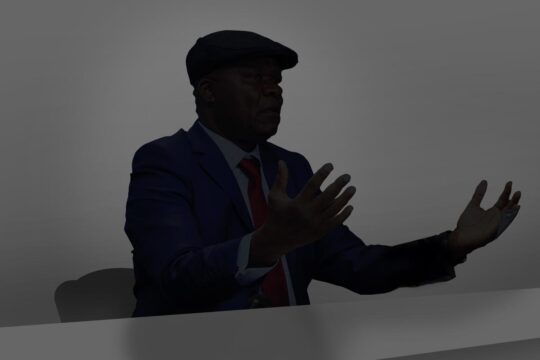Trials for serious crimes follow and sometimes resemble each other in South Kivu, eastern Democratic Republic of Congo (DRC). Two years after sentencing to life in jail a local politician convicted, along with others, of raping some 30 girls between 2013 and 2016, military justice has been sitting in this martyred region of the DRC since September 3 in a new trial.
The case concerns five members of Raia Mutomboki, one of the local and foreign militias that have been scarring eastern DRC for years. Militia leader Frederic Alimasi Musada, nicknamed Kokodikoko, and his four associates are being prosecuted for rape, murder, torture, sexual slavery, deprivation of liberty, looting and destruction of property that could constitute crimes against humanity. About 350 victims, including more than 190 victims of sexual violence, are participating in the trial.
Recent events
The crimes in this trial happened less than two years ago in the territories of Mwenga and Shabunda. The name that comes up most often in this case is Kabikokole, a village in the heart of the forest in Mwenga territory. According to the prosecutor, a group of Raia Mutomboki fighters under Musada's command raided the village on the night of February 8, 2018. The only bridge connecting the small community to the rest of the world was cut off by the assailants, who then committed various crimes against the villagers. More than 100 women were locked in houses and raped one after the other.
Two months later, according to the prosecution, the same group committed similar crimes in villages in Shabunda territory, still in South Kivu. Musada and his men "used particularly violent methods and killed hundreds of people in repeated attacks throughout 2018 in the territories of Mwenga and Shabunda. These are systematic crimes," says Daniele Perissi from Trial International, a non-governmental organization that has been involved in documenting these crimes.
This militia leader, whose very name makes the inhabitants of Mwenga and Shabunda tremble, was also implicated in a 2018 UN expert report, which accused him not only of rape but also of illegal exploitation and trade in natural resources. A former sergeant in the Congolese regular army, Musada was captured by government troops during an operation last April in Shabunda territory. At that time, the collection of evidence of his involvement in the alleged crimes was very advanced, thanks to the work of Trial International and its partners in the "Task Force for International Justice", an informal network of international actors who collaborate to support the work of Congolese military courts in investigating mass crimes in the DRC.
Hearings on the ground
The Bukavu Garrison Military Court is scheduled to hold mobile court hearings until October 17. Its relocation from village to village allows a better understanding of the facts and their context, and facilitates access to victims. "Not only do they (the victims) not have to travel, but they are also in a familiar and safe environment. This is all the more important if they are psychologically fragile, or if they have suffered from often taboo crimes such as sexual violence," said Daniele Perissi, which also supports local lawyers involved in the case. Some of these victims are already receiving medical and legal assistance from the Panzi Foundation, set up in Bukavu by Nobel Peace Prize winner Denis Mukwege, nicknamed "the man who repairs women".
Demand for State reparations
The Panzi Foundation provides several services, including a "legal clinic" that assists victims who are civil parties before the courts. In an interview with JusticeInfo, the clinic's coordinator, David Bugamba Amani, explained that in this case, he wanted to obtain the conviction not only of the perpetrators of the crimes but also of the Congolese State, which he accused of having failed in its mission. "If there have been crimes committed against poor populations, it is also because the Congolese State has failed to play its role as protector. Our target is not only the perpetrators of the crimes, but also the Congolese State that we would like to see recognized as civilly responsible and ordered to pay compensation to the victims. As long as its irresponsibility (of the Congolese State) is tolerated, it will not make any effort to protect civilians from criminals," the lawyer said in an interview with JusticeInfo.
“Only going to greet my family”
The defence does not wish, at this stage, to reveal its strategy. "We have so far no comment to make on the charges against our client. When we have heard all the prosecution's evidence, we will decide our line of defence," said Jean-Claude Mufungizi, Musada's lawyer. "All we want is for the trial to be conducted in accordance with the law, because we all have the right to a fair trial."
At the September 25 hearing in Kitutu, however, the main defendant set the tone. "All these villages, it is my brothers who are there. I was only going to greet my family, but not to cause any abuse," said Kokodikoko, in response to a question from the presiding judge. According to the online Congolese newspaper LaprunelleRDC.info, the militia leader did not deny his presence in Kabikokole in February 2018. But he tried to minimize the seriousness of the crimes charged, acknowledging only that his men had looted some of a resident's property and that one of his militiamen had taken a woman he later married.
The trial is taking place at a time when the Raia Mutomboki militia, already split into a multitude of factions, is facing unprecedented operations by the Congolese army. On September 30, Shukuru Kawaya, leader of one of these factions, surrendered to the regular troops with five members close to him, in the territory of Kalehe where he was spreading terror.
Eyes on Goma too
On the other side of the lake, in Goma, North Kivu, the military judges are not to be outdone. For almost a year now, they have been conducting investigations into the very complex case of Tabo Ntaberi, alias Sheka, founder and former leader of the Nduma Defence of the Congo (NDC). Tabo Ntaberi's fighters have distinguished themselves by massive rapes in North Kivu, as have those of Masudi in South Kivu.






